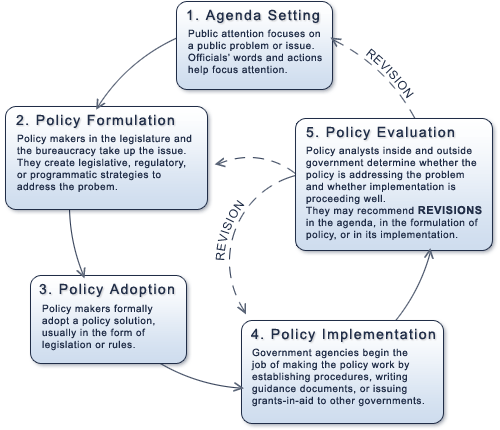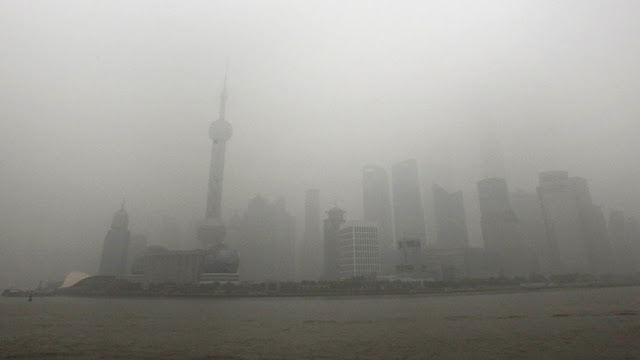Introduction
Welcome to POL 211, Public Policy. My name is Barry Murdaco. I have posted the syllabus on Blackboard. The readings are available on Blackboard under Course Materials. I have included several interviews as well. The syllabus also includes a breakdown of the class schedule for the semester and grading. There will be a midterm and final exam posted on Blackboard as well.
For now, I would mostly like the class to get familiar with using Blackboard. I will post additional material throughout the semester as well. A great place to begin would be to watch the speech by Cornel West.
As far as studying public policy, we will mostly look at the process of how policy is actually made, and later on in the semester look at specific issues like healthcare and foreign policy. Policies are essentially the actions taken by the government in accordance with law. In theory, these policies are meant to be for the benefit of the public, or the people, but in reality that is not often the case.
The process itself can be broken down as shown here in this figure:
The first step, what is called "agenda setting" is where the public as a whole plays the biggest role. To understand this it is important to look at how ideas and cultural values shape public issues. The study of public policy is known as "policy studies" and as important as it is to study issues in public policy it is also important to understand how people study policy and how we develop knowledge of the policy process. One of the developments in policy studies over the last few decades has seen a strong interest in how ideas, or more generally, cultural values impact policy. This can help us understand why public policy often seems "irrational" or does not speak to the needs of the majority of people. The chart above depicts policy in a very rational way and if policy actually followed this process it would be hard to understand why policies often fail or do not address the concerns of the majority of people.
For now, I would mostly like the class to get familiar with using Blackboard. I will post additional material throughout the semester as well. A great place to begin would be to watch the speech by Cornel West.
As far as studying public policy, we will mostly look at the process of how policy is actually made, and later on in the semester look at specific issues like healthcare and foreign policy. Policies are essentially the actions taken by the government in accordance with law. In theory, these policies are meant to be for the benefit of the public, or the people, but in reality that is not often the case.
The process itself can be broken down as shown here in this figure:
The first step, what is called "agenda setting" is where the public as a whole plays the biggest role. To understand this it is important to look at how ideas and cultural values shape public issues. The study of public policy is known as "policy studies" and as important as it is to study issues in public policy it is also important to understand how people study policy and how we develop knowledge of the policy process. One of the developments in policy studies over the last few decades has seen a strong interest in how ideas, or more generally, cultural values impact policy. This can help us understand why public policy often seems "irrational" or does not speak to the needs of the majority of people. The chart above depicts policy in a very rational way and if policy actually followed this process it would be hard to understand why policies often fail or do not address the concerns of the majority of people.
Studies of politics assume that self-interest plays the most important role in how people decide on actions, in other words their actions are motivated by getting things that are important to them. That seems obvious enough, but in certain situations understanding what is in your own best interest may not be so obvious. To this extent, studies of politics have introduced the idea of culture and ideas as providing a "map" or a way of defining what your interests are. Cultures also provide values that people internalize and try to live up to, whether it is being a honest person, a powerful person, a wealthy person, etc,. all of these values are culturally defined to some extent even if they are values that are shared across different cultures. American culture plays a high emphasis on wealth and that could help explain why policies often favor the wealthy, for example low taxes on the wealthy and very minimal policies to help people who are not wealthy. American culture is also militaristic and can help explain why we spend so much money on the military and why many Americans do not question the foreign policy decisions of the government.
However, policy is not made in a vacuum, and to a large extent the past dictates the present, therefore we will also look at the major institutions of government that shape policy as well. Institutions regulate, or set the rules for how how people act in certain situations. Some institutions are formal and have clearly defined rules, some are informal, and less defined. We are born into a world of institutions that are deeply connected, and in most cases represent past configurations of power that exist in the present, and literally shape people to fit the requirements of these institutions. Institutions do change over history, but the process is often very difficult and contentious. In the American system, many institutions are designed to undermine or weaken the power of popular majorities, these include the Senate, the Electoral College and the Supreme Court, as well as institutions not in the Constitution like "gerrymandering" in the House of Representatives, the "filibuster" in the Senate that raises the threshold for approval to 60 votes instead of 51, and voter suppression laws in states controlled by Republicans.
If I can make a bold statement, I would say to a large extent we do not have "real" politics anymore, or put another way the political system is "broken." To say we do not have real politics obviously presumes that I have some idea of what politics is. Simply put, politics is about improving the living standards of people. In other words, politics is materialistic in that it is about improving the material conditions of people. It is a way of collectively making decisions with the goal of improving the lives of people. As a society, we grant power to the government in order to enact policies that will benefit the people. Unfortunately, if you survey contemporary American politics that no longer seems to be the point of politics anymore, as most Americans have seen several decades of declining living standards with politicians from both political parties incapable of doing anything to significantly improve the living standards of people in this country. What you have instead is that politics has increasingly become about cultural, or symbolic, issues in place of improving the material conditions of people. These symbolic issues can range from things like not getting a COVID vaccination because it infringes on your "freedom" to tearing down statues of Confederate generals and politicians. At the annual meeting of conservatives known as CPAC (Conservative Political Action Conference) one of the speakers praised the low vaccination rates in the U.S. which was met with cheers from the audience, leading to one news publication calling this "a celebration of death" (CPAC Conference). It is often alleged that conservatives began this so-called culture war, but liberals play into it too. You could argue the two most recent former Presidents Trump and Obama personify the cultural ideals of their respective sides, regardless of whether either actually implemented policies that significantly improved the lives of their supporters. My thesis here is that symbolic politics has replaced the material aspects of politics because the political system is no longer capable of improving the material conditions of people, and so symbolic politics is essentially a cheap substitute for actually doing something real to improve people's lives (like giving them healthcare, higher wages, forgiving debt, etc.) So, even though culture is important in understanding how policy is made we should not lose sight of the material aspects of politics as well.
To give an example of how broken politics is here is a link to an article from the political magazine The American Prospect. The author of the article has compiled dozens of public opinion polls that shows the vast difference between what the majority of the public wants and actual policy. This vast difference can be explained mainly by the undemocratic institutions of the Constitution mentioned which gives too much power to the minority over the majority, but also to some extent by cultural values, including the lack of political knowledge on the part of large parts of the public. People are also often inconsistent in their opinions, so even if they think the wealthy do not pay their fair share of taxes they may also hold individual billionaires like Elon Musk or Bill Gates in high regard, or shy away from radical proposals that would significantly change the balance of power.
https://prospect.org/power/americans-liberal-even-know/
Next class, we will begin discussing in more detail, the policy process, and how ideas influence this process. Please watch the Cornel West speech and read the first chapter, "Introduction," in Ideas and Politics. Thank you, looking forward to a great semester.
For the first assignment, choose a part of the Cornel West speech to write about. Explain what West is saying and explain why you chose this part of the interview to write about. All of the assignments will follow a similar format, either based on one of the videos for class, or the reading material.
For the first assignment, choose a part of the Cornel West speech to write about. Explain what West is saying and explain why you chose this part of the interview to write about. All of the assignments will follow a similar format, either based on one of the videos for class, or the reading material.



This comment has been removed by the author.
ReplyDeleteI am confused as well. I don't know when our first assignment is going to be. I've been just reading the syllabus and watching the video you have linked. Using the blog is a little confusing.
ReplyDeleteI agree, I am also pretty confused as to when the assignments are do or what we even need to read and watch.
Deletewell, he said the reflection paper is due this Wednesday on the first reading on blackboard.
DeleteThis comment has been removed by the author.
DeleteI am assuming we are writing about the Cornel West video onto the blogg but I'm not entirely sure.
Deletewe are writing about the cornel west video. and put our writing on the blog. our blog.
ReplyDeleteif you need help with anything, e-mail me yones195@gmail.com
ReplyDeleteThank you!
Delete